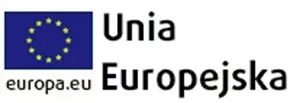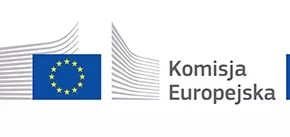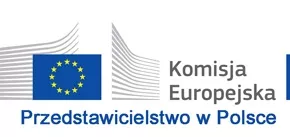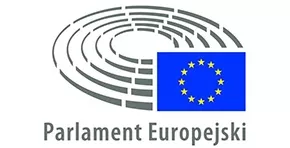Data publikacji: 14.12.2011
Prawo do rzetelnego procesu sądowego w UE w końcu przyjęte: podejrzani w postępowaniu karnym otrzymają pouczenie o prawach
 W wyniku wczorajszego głosowania w Parlamencie Europejskim osoby podejrzane w Unii Europejskiej wkrótce otrzymają „pouczenie o prawach” informujące o przysługujących im prawach podstawowych w postępowaniu karnym.
W wyniku wczorajszego głosowania w Parlamencie Europejskim osoby podejrzane w Unii Europejskiej wkrótce otrzymają „pouczenie o prawach” informujące o przysługujących im prawach podstawowych w postępowaniu karnym.
Omawiany środek został zaproponowany przez Komisję Europejską w lipcu 2010 r. (IP/10/989) w ramach starań zmierzających do zagwarantowania obywatelom w całej Europie prawa do rzetelnego procesu sądowego. Jest to drugi krok z całej serii środków zmierzających do ustanowienia wspólnych europejskich standardów w postępowaniu karnym. Środek ten stanowi element starań Komisji zmierzających do wzmocnienia prawa do sprawiedliwego procesu w całej UE i zwiększenia wzajemnego zaufania między organami sądowymi. Zanim zacznie obowiązywać, środek ten, po zatwierdzeniu przez Parlament, zostanie teraz rozpatrzony przez ministrów i ostatecznie przyjęty przez Radę w nadchodzących tygodniach.
Z zadowoleniem przyjmując wyniki głosowania komisarz UE ds. sprawiedliwości Viviane Reding, stwierdziła: „Dzisiejsze głosowanie jest zasadniczym krokiem w pracach Komisji Europejskiej w dziedzinie prawa karnego. Chciałbym podziękować Parlamentowi za jego wsparcie, w szczególności Birgit Sippel za jej pracę w roli sprawozdawcy. UE podejmuje zdecydowane działania na rzecz wzmocnienia praw osób w postępowaniu karnym, a jednocześnie na rzecz zwiększenia wzajemnego zaufania w przestrzeni wolności, bezpieczeństwa i sprawiedliwości.”
Nowe prawo zadba o zagwarantowanie każdej osobie podejrzanej o popełnienie przestępstwa odpowiednich informacji o przysługujących jej podstawowych prawach w postępowaniu karnym. Są to: prawo do posiadania adwokata; do informacji o zarzutach; do tłumaczenia ustnego i pisemnego w przypadku, gdy dana osoba nie włada językiem postępowania; w przypadku zatrzymania, prawo do zachowania milczenia i do szybkiego postawienia przed sądem.
Przyszłe prawo obejmuje pięć zasadniczych elementów:
1. po zatrzymaniu podejrzany będzie informowany przysługujących mu prawach;
2. podejrzany otrzyma pouczenie o prawach przedstawiające te informacje na piśmie;
3. pouczenie o prawach będzie łatwe do zrozumienia, bez żargonu prawnego;
4. zostanie ono udostępnione w języku, który podejrzany rozumie;
5. pouczenie będzie zawierać praktyczne informacje o prawach osoby podejrzanej.
Przedmiotowa ustawa będzie również zawierać istotne innowacje mające na celu wzmocnienie stosowania europejskiego nakazu aresztowania, zwłaszcza poprzez zagwarantowanie, by każda osoba, wobec której wydano taki nakaz, niezwłocznie otrzymuje odpowiednie „pouczenie o prawach” (IP/11454).
Komisja Europejska przekazała państwom członkowskim wzór takiego pouczenia, który zostanie przetłumaczony na 23 języki urzędowe UE.
Kontekst
Prawo do informacji w postępowaniu karnym, obok prawa do tłumaczenia pisemnego i ustnego, jest jednym ze środków zapewniających rzetelność procesu, mającym na celu zwiększenie zaufania do jednolitego obszaru sprawiedliwości UE.
W październiku 2010 r. Parlament Europejski i Rada zatwierdziły już pierwszy wniosek ustawodawczy, który dał podejrzanym prawo do tłumaczenia pisemnego i ustnego (IP/10/1305 i MEMO/10/351).
W czerwcu 2011 r. Komisja przedstawiła trzeci środek mający na celu zagwarantowanie dostępu do adwokata oraz prawa do kontaktu z bliskimi (IP/11/689). Wniosek ten jest obecnie przedmiotem dyskusji w Parlamencie Europejskim i Radzie.
Każdego roku w Unii Europejskiej prowadzonych jest ponad 8 milionów postępowań karnych. Obecnie dostęp obywateli do odpowiednich informacji o przysługujących im prawach w przypadku aresztowania i postawienia zarzutów karnych nie jest jednakowy w poszczególnych państwach UE. W niektórych państwach członkowskich podejrzani otrzymują tylko informacje ustne o przysługujących im prawach procesowych, a w innych informacje na piśmie są przekazywane wyłącznie na żądanie.
Zgodnie z art. 82 ust. 2 Traktatu o Funkcjonowaniu Unii Europejskiej, w celu ułatwienia wzajemnego uznawania orzeczeń sądowych i poprawy współpracy policyjnej i sądowej w sprawach karnych o charakterze transgranicznym, UE może przyjąć środki zwiększające prawa obywateli UE zgodnie z Kartą praw podstawowych UE.
Prawo do rzetelnego procesu oraz prawo do obrony są przewidziane w art. 47 i 48 Karty praw podstawowych UE, a także w art. 6 europejskiej konwencji praw człowieka.
Dalsze informacje
Portal informacyjny Dyrekcji Generalnej ds. Sprawiedliwości:
Komisja Europejska − prawa podejrzanych i oskarżonych:
ANNEX 1: Indicative model Letter of Rights
The sole purpose of this model is to present an illustration of a Letter of Rights with a view to helping the national authorities when preparing such Letter at national level. Member States are not bound to use this model. When preparing their Letter, they may amend this model to align it with their national applicable rules and add further useful information.
You have the following rights:
A. ASSISTANCE OF A LAWYER / ENTITLEMENT TO LEGAL AID
You have the right to speak confidentially to a lawyer. A lawyer is independent from the police. Ask the police if you need help to get in contact with a lawyer, the police shall help you. In certain cases the assistance may be free of charge. Ask the police for more information.
B. INFORMATION ABOUT THE ACCUSATION
You have the right to know why you have been arrested/detained and what you are suspected of having done.
C. INTERPRETATION AND TRANSLATION
If you do not speak or understand the language, you have the right to be assisted by an interpreter. This is free of charge. The interpreter may help you to talk to your lawyer and is required to keep the content of this communication confidential. You have the right to translation of at least the relevant passages of essential documents, including any order by a judge allowing your arrest or keeping you in custody, any charge or indictment and any judgment. You may in some circumstances be provided with an oral translation or summary.
D. RIGHT TO REMAIN SILENT
While questioned by the Police or judicial authorities, you are not obliged to answer questions about the alleged offence. Your lawyer can help you to decide on that.
E. ACCESS TO DOCUMENTS
When you are arrested, you (or your lawyer) have the right to access essential documents you need to challenge the arrest or detention. If your case goes to court you (or your lawyer) will have the right to access material evidence for or against you.
F. INFORMING SOMEONE ELSE ABOUT YOUR DETENTION / INFORMING YOUR CONSULATE OR EMBASSY
When you are arrested, tell the police if you want someone to be informed of the detention, for example a family member or your employer. In certain cases the right to inform other persons of your detention may be temporary limited. The police will be able to tell you.
If you are a foreigner, tell the police if you want your consular authority or embassy to be informed of the detention. Also tell the police if you want to contact an official of your consular authority or embassy.
G. URGENT MEDICAL ASSISTANCE
When you are arrested, you have the right to urgent medical assistance. Tell the police if you are in need of urgent medical care.
H. PERIOD OF DEPRIVATION OF LIBERTY
After your arrest you may be deprived of your liberty/detained for a maximum period of …. [fill in applicable number of hours/days]. At the end of this period you must either be released or be heard by a judge who will decide on your further detention. Ask your lawyer or the judge for information about possibilities to challenge the arrest, to review the detention or to ask for provisional release.
ANNEX II: Indicative model Letter of Rights for persons arrested on the basis of a European Arrest Warrant:
The sole purpose of this model is to present an illustration of a Letter of Rights with a view to helping the national authorities when preparing such Letter at national level. Member States are not bound to use this model. When preparing their Letter, they may amend this model to align it with their national applicable rules and add further useful information.
You have been arrested on the basis of a European Arrest Warrant. You have the following rights.
A. INFORMATION ABOUT THE EUROPEAN ARREST WARRANT
You have the right to be informed about the content of the European Arrest Warrant on the basis of which you have been arrested.
B. ASSISTANCE OF A LAWYER
You have the right to speak confidentially to a lawyer. A lawyer is independent from the police. Ask the police if you need help to get in contact with a lawyer, the police shall help you. In certain cases the assistance may be free of charge. Ask the police for more information.
C. INTERPRETATION AND TRANSLATION
If you do not speak or understand the language, you have the right to be assisted by an interpreter. This is free of charge. The interpreter may help you to talk to your lawyer and is required to keep the content of this communication confidential. You have the right to a translation of the European Arrest Warrant in a language you understand. You may in some circumstances be provided with an oral translation or summary.
D. POSSIBILITY TO CONSENT
You may consent or not consent to being surrendered to the State seeking you. Your consent would speed up the proceedings. [Possible addition of certain Member States: It may be difficult or even impossible to change this decision at a later stage.] Ask the authorities or your lawyer for more information.
E. HEARING
If you do not consent to your surrender, you have the right to be heard by a judicial authority.
Źródło IP/11/1534
Copyright © 2021 Wir Poznań | Wszelkie prawa zastrzeżone.












